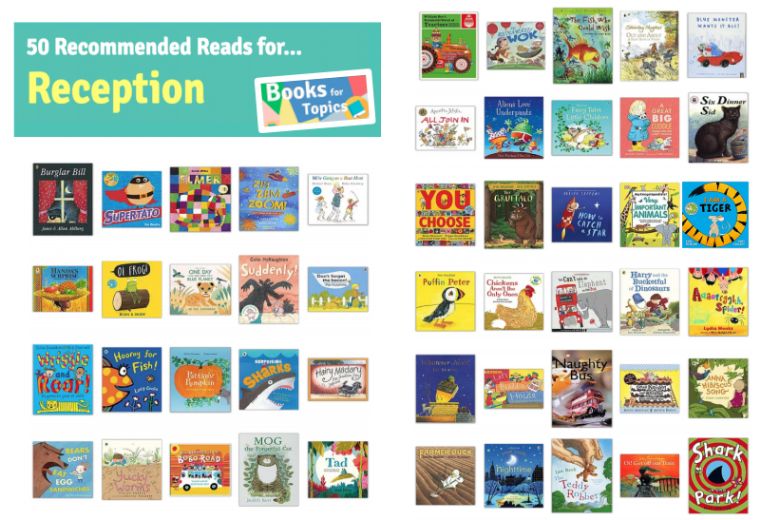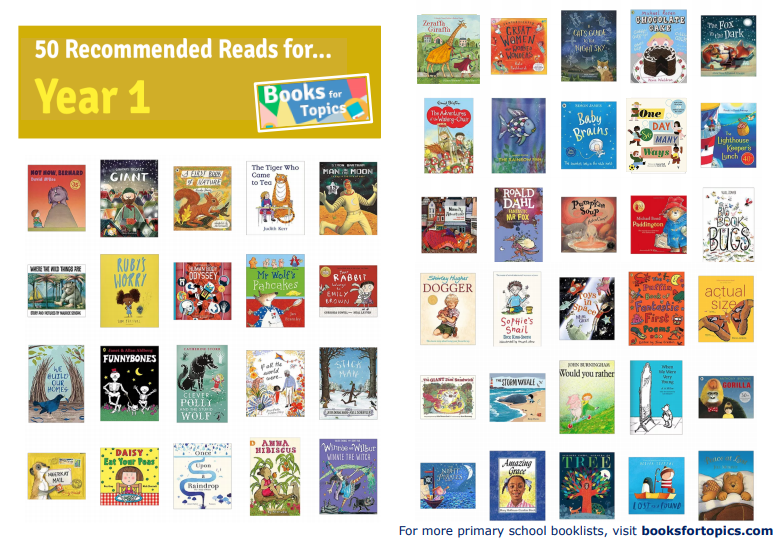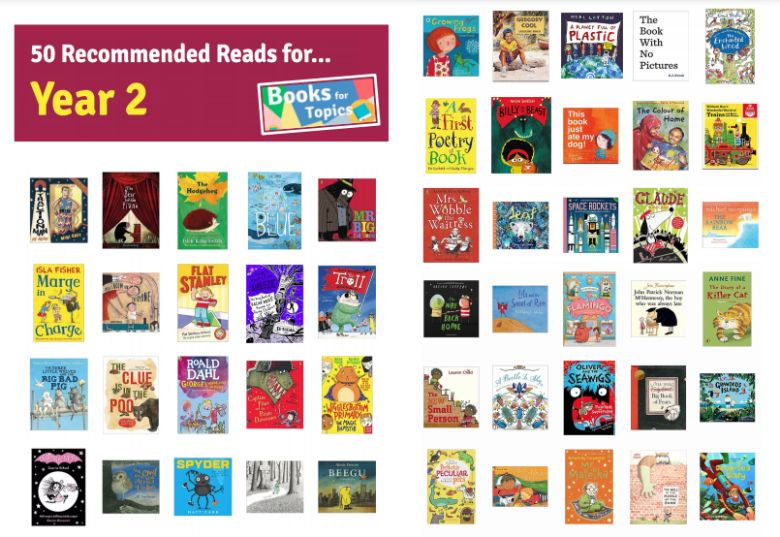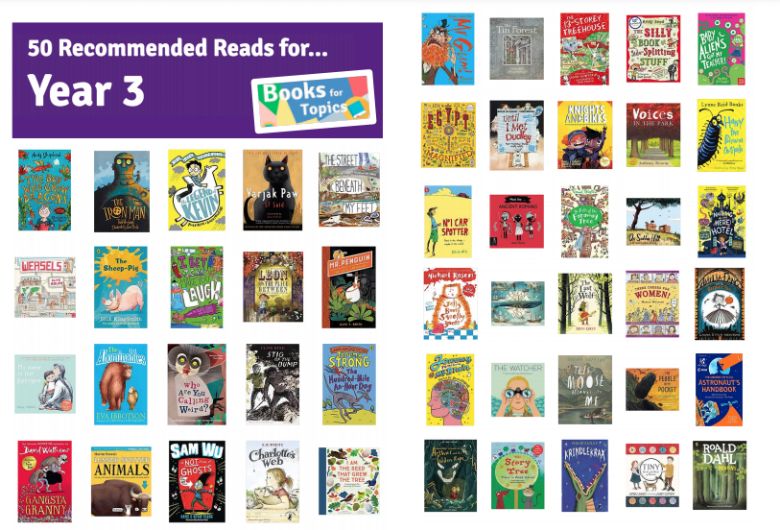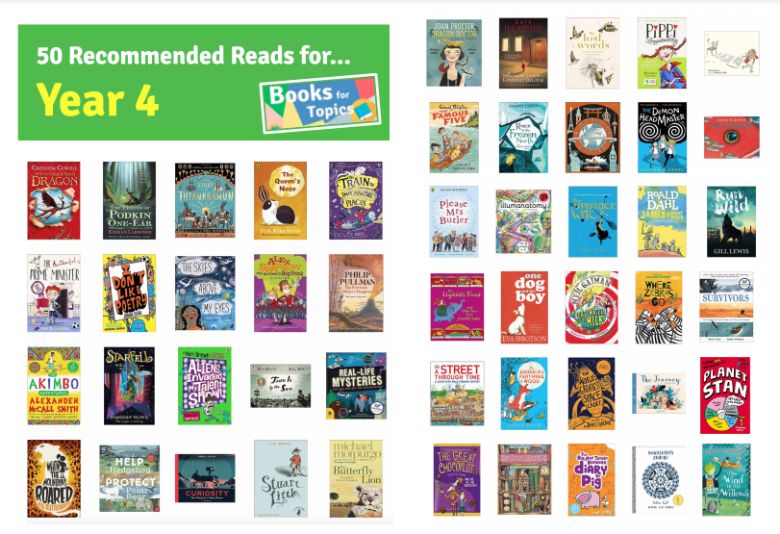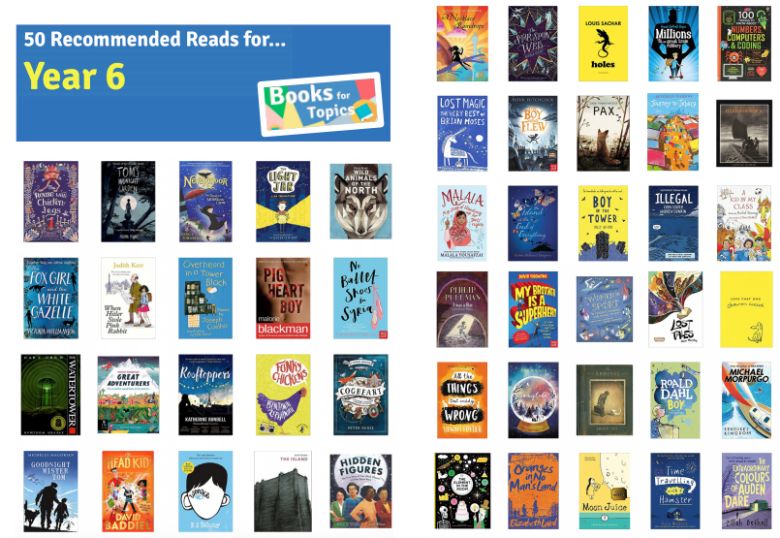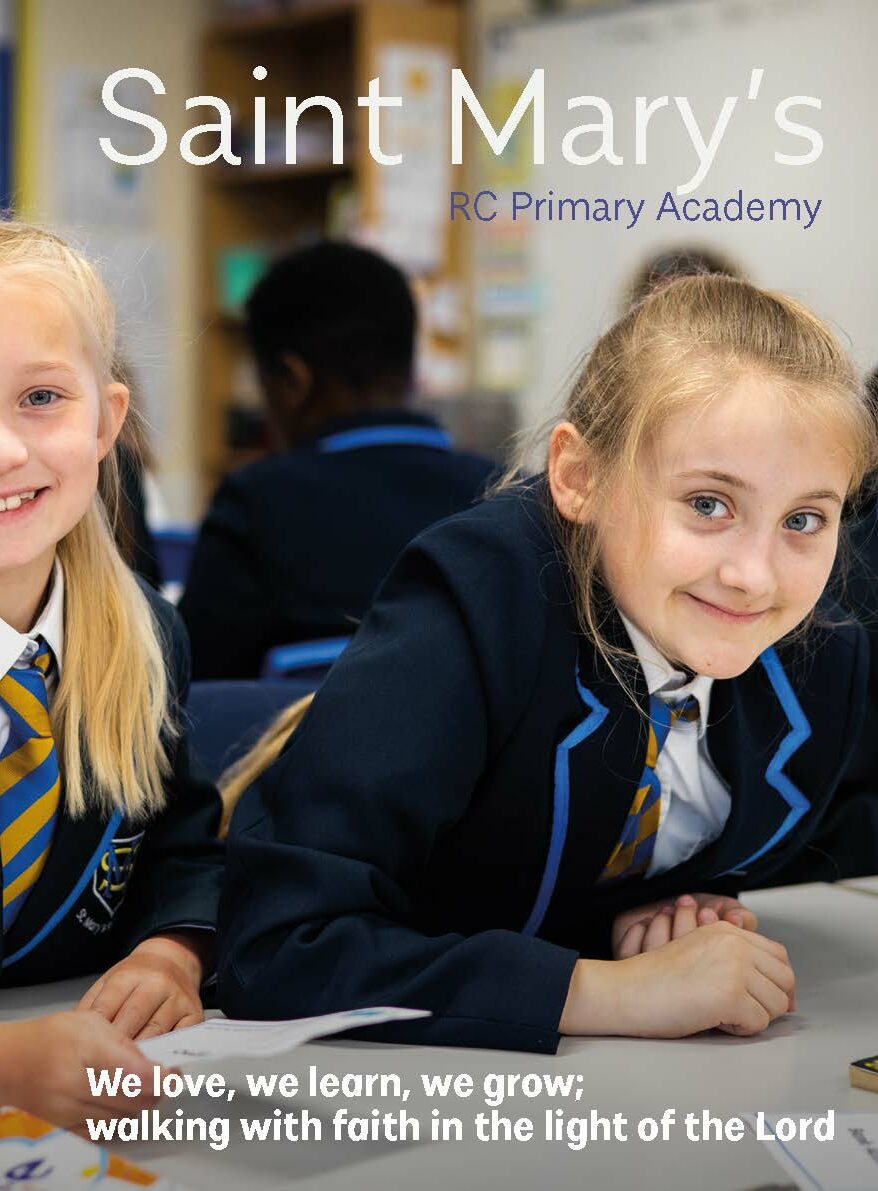English sits at the heart of our curriculum; it is through language, story and text that children learn to form concepts, connect ideas and express themselves. Through literacy, in all its forms, children learn to both make sense of the world and shape their place within it. In EYFS and KS1 we use Read Write Inc phonics to develop children’s reading and in KS2 we use Accelerated Reader. You can find out more by visiting those pages.
Reading
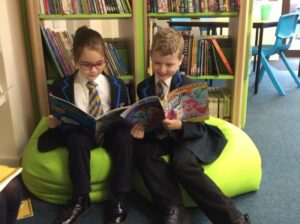
Reading with your child is vital. Research shows that it’s the single most important thing you can do to help your child’s education. With that in mind, try to put aside some time for it every day.
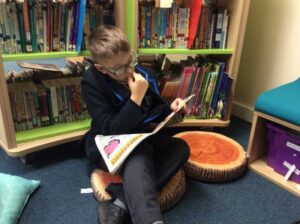
If your child is enjoying talking about the content of a particular page, encourage them to discuss the topic with you to extend their comprehension. Books aren’t just about reading the words on the page, they can also present new ideas and topics for you and your child to discuss.
Tips for helping your child to enjoy books:
- Visit your local library as often as possible.
- Schedule a regular time for reading – perhaps when you get home from school or just before bed.
- Buy dual-language books if English isn’t your family’s first language – you can talk about books and stories, and develop a love for them, in any language.
- Look for books on topics that you know your child is interested in – maybe dragons, insects, cookery or a certain sport.
- Ensure that you child is being read to, as well as reading independently and shared reading. Involve many family and friends in the reading experience.
- Make sure that children’s books are easily accessible in different rooms around your house.
As as school we are looking to develop confident, fluent, motivated readers who are able to take meaning and enjoyment from text.
A child’s understanding of a book is just as important as their ability to read the text. With this in mind please try to ask two or three of the questions listed every time you read with your child or share a story book:
- Where does the story take place? When did the story take place?
- What did he/she look like? Where do the characters live?
- Who are the main characters? What happened in the story?
- What kinds of people are in the story? What happened after..?
- Can you tell me why..? Describe what happened at/when…?
- Can you think of another story that has a similar theme?
- Why does the author choose this setting?
- What makes this a good story?
- What effect do you think the story has on the reader?
- Could the story be better? What would you suggest?
- What impression does the author want to give of this character? Why?
- What is the purpose of this paragraph?
- What question would you like to ask the writer?
- Who is this advert trying to persuade?
- What does this story remind you of?
- Does the story remind you of anything that has happened to you?
- How would you have felt in that situation?
- What might you have done instead?
- What other stories have similar openings/endings to this one?
- Many stories have messages, what is the message of this story?
- How do headings help you when you scan the text?
- How does the layout help the reader?
- How does the title of the story encourage you to read more?
- Some of the text is printed in a different way, why do you think the writer does this?
- Why has the author repeated structures, words and phrases?
- What is the purpose of the pictures?
- Why did the author change paragraphs here?
- Why has the author used ‘fact boxes’ for key points?
- What is the purpose of the chapter titles?
- Which words tell you what order to follow?
- What does the word…imply/make you think of?
- If you were going to interview/ask a character a question—who would you ask and what would your question be?
- What do you think will happen because of…?
- Through whose eyes is the story told?
- Why do you think…feels…?
- If this was you what would you do next?
- How have the characters changed during the story?
- Predict what you think is going to happen next. What makes you think that?
- What does the main character feel at this point in the story? How do you know this—can you pick out a sentence?
- What does (word/phrase) mean?
- Which words has the author used to make the writing sound more formal/informal?
- Why has the author used …(italics, bold, exclamation marks, headings, bullet points, captions etc.)?
- What has the author used in the text to make the character funny/sad/angry?
- Think of another word you can use here.
- As a reader, how do you feel about the character? What makes you feel that way?
- Can you find any similes/metaphors in the story?Find some adjectives that help you picture the scene/character in your mind.
- Find a sentence that encourages you to want to read more of the story.
- Why has the author set out the text like this?

